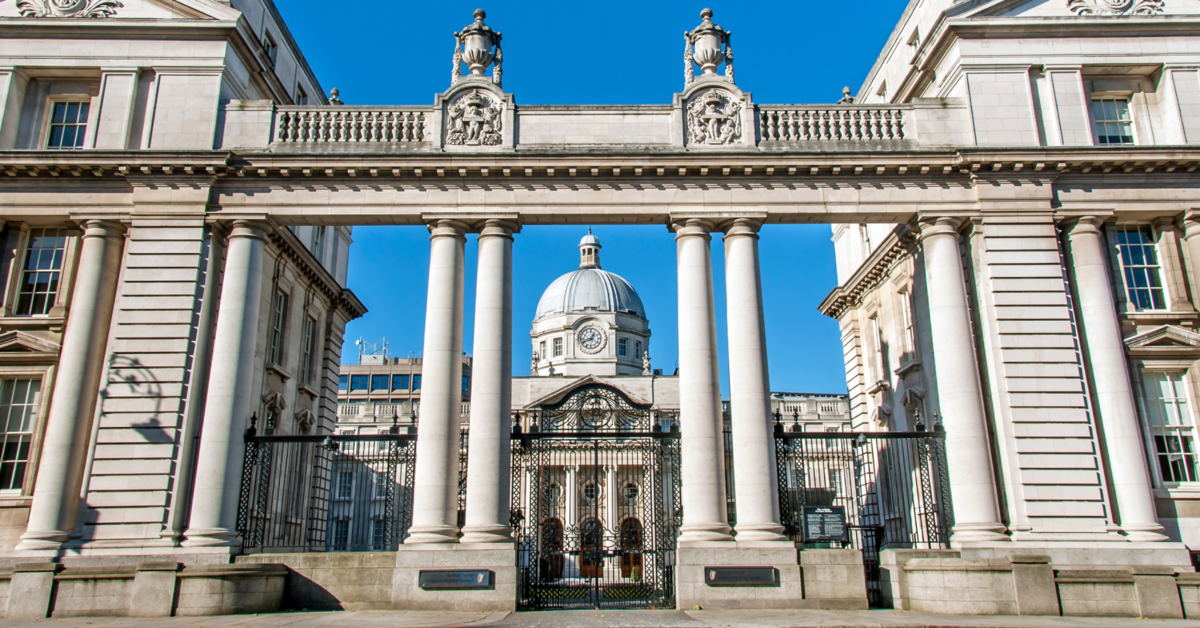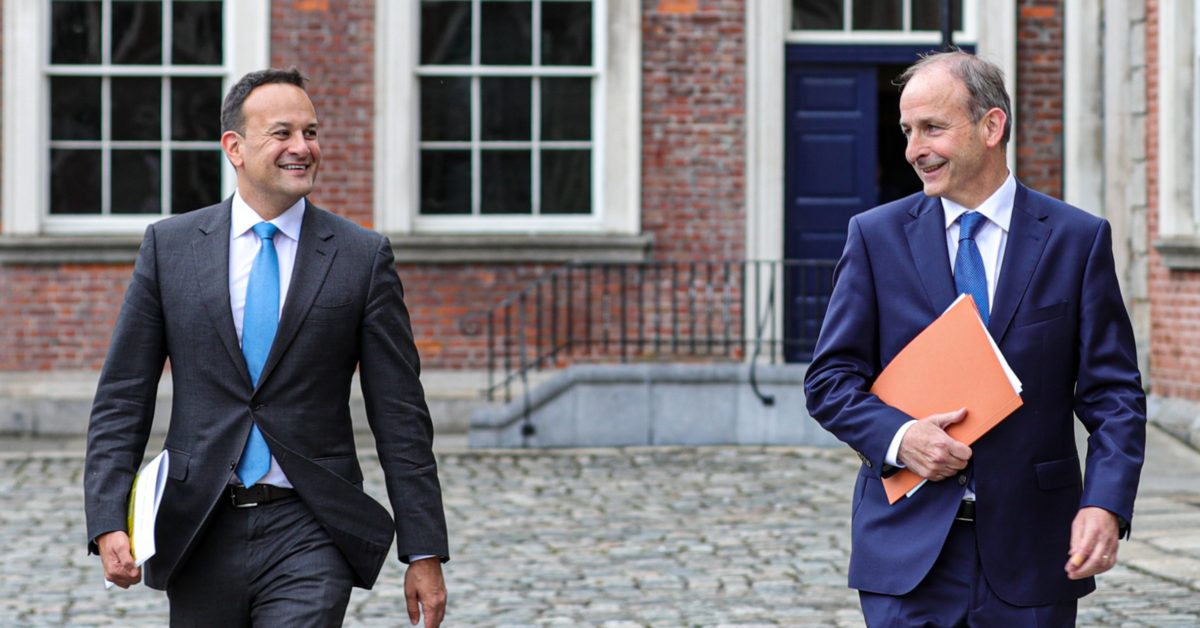President Biden Visits Ireland
President Biden marked the 25th anniversary of the signing of the Good Friday Agreement with a visit to Northern Ireland, reconnecting with his proudly held Irish heritage and engaging with outstanding challenges to secure long-term peace and political stability in Northern Ireland. His trip continues to the Republic of Ireland.
US President Joe Biden landed in Belfast, Northern Ireland, late Tuesday, commencing a three-day official visit to the island and fulfilling a promise he made upon being elected president in January 2021.
The President’s visit coincides with the 25th anniversary of the signing of the Good Friday Agreement, which ended decades of violence between Protestants and Catholics. The visit affords him the opportunity to reconnect with the Irish heritage he so closely identifies with and also to engage with the political progress and outstanding challenges that remain in securing long-term peace and political stability in Northern Ireland — including the current impasse in the Northern Ireland Assembly over post-Brexit terms of trade.
Biden’s itinerary is as busy and eclectic as we might expect. It began early Wednesday in Belfast with a 45-minute bilateral meeting with British Prime Minister Rishi Sunak during which the President emphasized the importance of the return of the executive and the assembly in Belfast.
The President then delivered a keynote speech at Queen’s University Belfast where he focused again on the necessity and economic benefits of a return to power-sharing at the Northern Ireland Assembly. He praised the efforts of both the UK and the EU to advance the Windsor Framework, an agreement to govern post-Brexit trade between Northern Ireland, Great Britain, and the European Single Market. He also directly addressed the young people of Northern Ireland, saying: “Your history is our history. Your future is our future. It is hard to express how deeply invested in your success people across the United States are.”
It is unlikely another US president will exert the same level of personal, hands-on influence in Northern Ireland politics as did President Clinton. However, President Biden is determined that the US remain closely involved and he is expected to offer ongoing political and economic support to ensure a peaceful and prosperous future for Northern Ireland. His appointment last December of Joseph Kennedy III as Special Envoy for Economic Affairs is proof of his intent in that regard.
Following his speech at Queen’s University, the President crossed the border into the Republic of Ireland to make the first of two visits to his ancestral roots in Carlingford and Dundalk in County Louth. The 80-year-old President will then meet with Ireland’s 81-year-old President Michael D. Higgins at his official residence in Dublin’s Phoenix Park, followed by a bilateral meeting with Irish Taoiseach (Prime Minister) Leo Varadkar in Farmleigh House, former residence of the Guinness family and now restored and in state hands.
Ireland is traditionally afforded significant access to the US administration in Washington, D.C. around St. Patrick’s Day festivities, and this presidential visit so soon after that engagement is a major bonus for the Irish Government. Having a serving US president with deep concern for Ireland — and intentions to run for a second term — is a boon for the country’s economic and political stability. Currently, Ireland’s economy relies heavily on corporate taxes, a major proportion of which come from US companies based in the country. Protecting that investment is top of mind for Irish politicians and will certainly be a focus for Leo Varadkar during his meeting with Biden in Farmleigh.
On Thursday, Biden will become the fourth US president to address the Oireachtas (Parliament), after Presidents Kennedy, Reagan, and Clinton. An address to the combined houses of Parliament is seen as an historic event and, if his message is compelling, it will be reported, and resonate, globally. In his speech, Biden is expected to revisit the issue of Northern Ireland while calling out the economic and social progress made in the south in recent years.
Returning to his ancestral home has lots of upside for President Biden. He is pushing an open door in terms of warmth, esteem, and influence, reinforcing the President’s status as a figure of influence in Ireland and the UK. His engagement with Rishi Sunak in Belfast, though brief, may in fact be the most significant political moment of the visit. And while it is unlikely that Biden’s visit will prompt any immediate step change in the north — the Democratic Unionist Party (DUP) will not want to be seen as shifting positions following the visit of an avowedly Catholic US President — these incremental wins matter, particularly in a fraught global environment with exceedingly few opportunities to secure wins.
So far, the trip is going according to script. We will see, however, how the visit is reported in the US and, ultimately, if President Biden stays on script regarding Northern Ireland — after all, staying on script is not something Biden always feels obliged to do.



